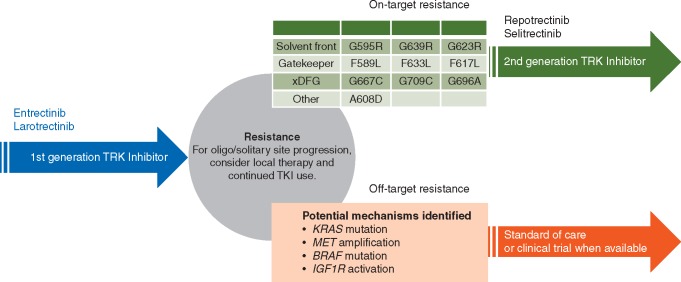Figure 1.
Sequential therapy. Durable responses to first-generation TRK inhibitors can be achieved in TRK fusion-positive cancers. In patients with advanced disease, when solitary site progression or oligoprogression occurs, local therapy such as radiation or surgery should be considered. The use of local therapy and continued treatment beyond progression has been shown to prolong disease control with TRK inhibitor therapy. At the onset of resistance, tumours can acquire either on-target or off-target resistance mechanisms. In the face of widespread disease progression, a second-generation TRK inhibitor trial could be considered for tumours that harbour on-target resistance, as evidence by the acquisition of solvent front, gatekeeper or xDFG TRKA/B/C substitutions. If a cancer has developed clear off-target resistance, disease-specific standard of care therapies could be considered if a clinical trial that meaningfully addresses these resistance mechanisms is not available. TKI, tyrosine kinase inhibitor.

